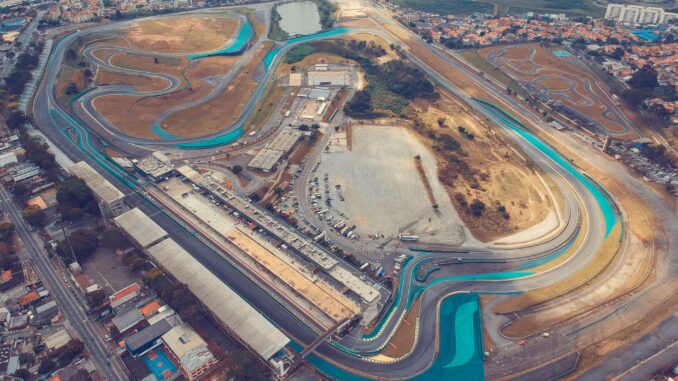
Two recent announcements from Formula 1’s (F1) management have landed the prestigious racing organization in more hot water (which is no stranger to the sport).
On Nov. 5, F1 announced that a new race, the Saudi Arabian Grand Prix, will be held in the streets of the country’s second largest city, Jeddah, beginning in 2023. There are plans for the event to move to a brand new purpose-built track in the future.
Considering F1’s new #WeRaceAsOne movement that brings awareness to social injustice and promotes inclusivity, announcing a race in a country that’s well known for its government authorities violating human rights comes off as backwards and ironic.
“The Saudi state security agency’s announcement which labels feminism, atheism and homosexuality as extremist ideas punishable by jail and flogging is outrageous — clearly contradicting the kingdom’s bogus reformist image which crown prince Mohammed bin Salman continues to flaunt internationally,” Amnesty International’s Middle East and North African Director Heba Morayef said to The Guardian.
Many F1 fans picked up on the controversial decision, too.
“We race as one, but when F1 can get money it doesn’t matter anymore,” a comment by “f2.addict” read under the official announcement of the race on F1’s Instagram page. The comment has over 2,000 likes.
Yet that’s not all.
Plans to build a new track in the Brazilian city of Sao Paulo came close to finalization within the last month before being axed due to managerial failure of securing proper licensure.
A race in Brazil? What’s the big deal?
Well, reader, there’s already a star-studded and fan-favorite track called Interlagos near Sao Paulo that hosts many modern racing series, including F1. Plus, the new track planned to replace it would’ve displaced close to 180,000 trees located in the Brazilian state of Deodoro. That’s basically cutting down an entire forest to replace something that works perfectly fine.
Even the newly crowned F1 world champion and win record holder Lewis Hamilton spoke up against the plans.
“I heard it is potentially going to be a sustainable race,” Hamilton told BBC in October. “But the most sustainable thing you can do is not tear down any trees. I don’t think it’s a smart move. There is a global crisis with deforestation.”
F1 even has an expansive sustainability plan that includes being carbon neutral by 2030 and drawing heavily on renewable energy. The plan to construct a new and frankly pointless track would waste all of those efforts and contribute heavily to climate change.
Fortunately, after the 2020 expiration of the original contract to hold the Brazilian Grand Prix at Interlagos, talks are starting again towards the goal of racing there on a long-term deal, therefore putting a likely end to plans of a new venue.
With F1’s current season re-exploring classic tracks that have deep racing legacies and exciting layouts, fans were left disappointed at the prospect of executives desiring new facilities in two separate occasions despite a plethora of iconic circuits such as the Nurburgring, Imola, Mugello and Turkey being passed over.
The biggest motorsport series in the world is no stranger to controversy, but this is just plain embarrassing.

